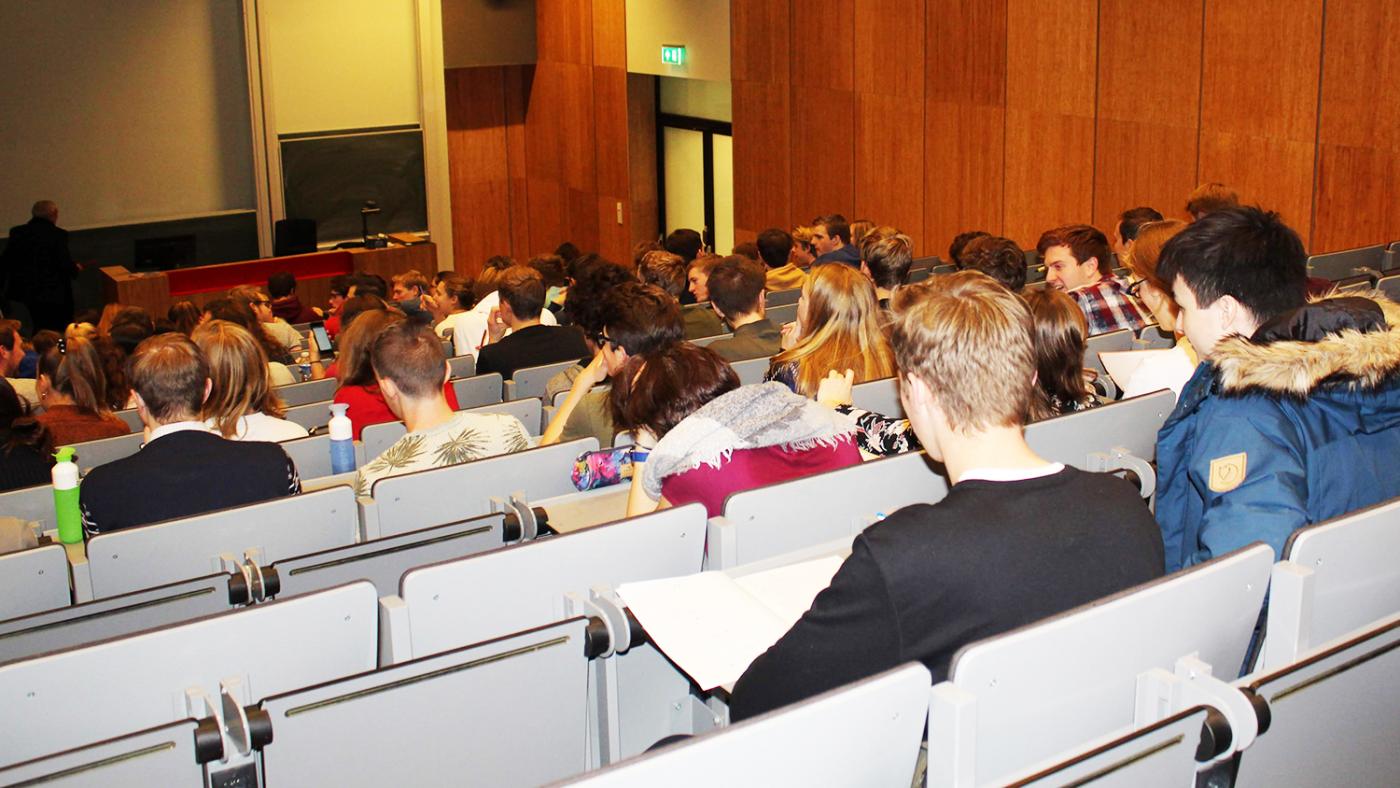The new magic word
Do the humanities benefit from more interdisciplinarity?

When the university presented its strategic plan for 2030, a few weeks ago, I was naturally delighted. It features beautiful pictures of students digging in the ground and researchers looking enthusiastically at a board full of rising graphs and images of the plastic soup, followed by the solution: an academic world with an open mind, open attitude, and open science. Who could object to that?
However, when I read the text, something rubbed me the wrong way. For starters, the wording ('top university with a broad range of humanities') is questionable, particularly in light of the budget cuts. The unbridled focus on collaboration between disciplines is also striking: the word 'discipline' is mentioned no fewer than 26 times in all its forms (multi-, inter-, and transdisciplinary). In education, there is a specific preference for interdisciplinarity, even though, in my opinion, this form should be critically.
Given the nuance, it is good to distinguish between the different forms of disciplinarity. Multidisciplinarity means that a phenomenon is viewed from multiple disciplines. Interdisciplinarity goes further and integrates those perspectives. Transdisciplinarity involves collaboration with social partners.
Even before this strategic plan, interdisciplinarity had been enthusiastically promoted for several years. It has even become a veritable totem pole of the university, with trendy slogans such as “It goes beyond a simple sum of its parts”, special programmes such as Philosophy, Politics & Economics (PPE) and Care, Health & Society. Since 2021, UU has had a dean of Interdisciplinary Education.
My concern is not about bringing disciplines together per se. On the contrary, bringing disciplines together ensures that many social developments can be better understood. Take migration, for example, a problem with roots in various disciplines, including Philosophy, Political Science, History, and Social Geography, among others.
Nevertheless, in my view, the specific focus on interdisciplinarity should not be allowed to go unchallenged. After all, it leads to a decline in knowledge in various fields. Ask yourself this question: Should students be trained less deeply in multiple disciplines or thoroughly in one area of expertise, and only then collaborate with other disciplines? That is the difference between interdisciplinarity and multidisciplinarity.
An example: for a few weeks, I have attended meetings at the multidisciplinary honours programme at Descartes College, where I have experienced how enjoyable and interesting it is to complement each other's expertise on various social topics. However, when I had a conversation with a friend who studies PPE, I was unable to go into much depth about a common discipline: History.
PPE is a programme that remains closely tied to the monodisciplines and in which students specialise. What about the upcoming Bachelor's programme in Politics, Culture & Religion? According to the programme page (available in Dutch only, Ed.), you will learn Middle Eastern studies, History, Education, Media, Philosophy, Literature and Economics.
This is undeniably a weakness. After all, it detracts from the added value of a student after their Bachelor's degree, in science and society. Of course, we need people who can recognise common ground between disciplines, but should the university focus on interdisciplinarity as heavily as it does in its strategic plan?
In short, collaboration between disciplines has shown me countless times how complex problems can be made understandable. However, it does no harm to remain critical of quality and the potential for tunnel vision on interdisciplinarity. That consideration is missing from the strategic plan and the presentation of the new Bachelor's programmes in the humanities, even though it is much more relevant to students than pretty pictures, cool slogans and promotional videos.
Merijn is a History student and blogger for DUB's Dutch page. He writes about issues that affect him as a student. The opinions expressed in the op-ed above belong to the author and do not necessarily reflect DUB's views.
Comments
We appreciate relevant and respectful responses. Responding to DUB can be done by logging into the site. You can do so by creating a DUB account or by using your Solis ID. Comments that do not comply with our game rules will be deleted. Please read our response policy before responding.